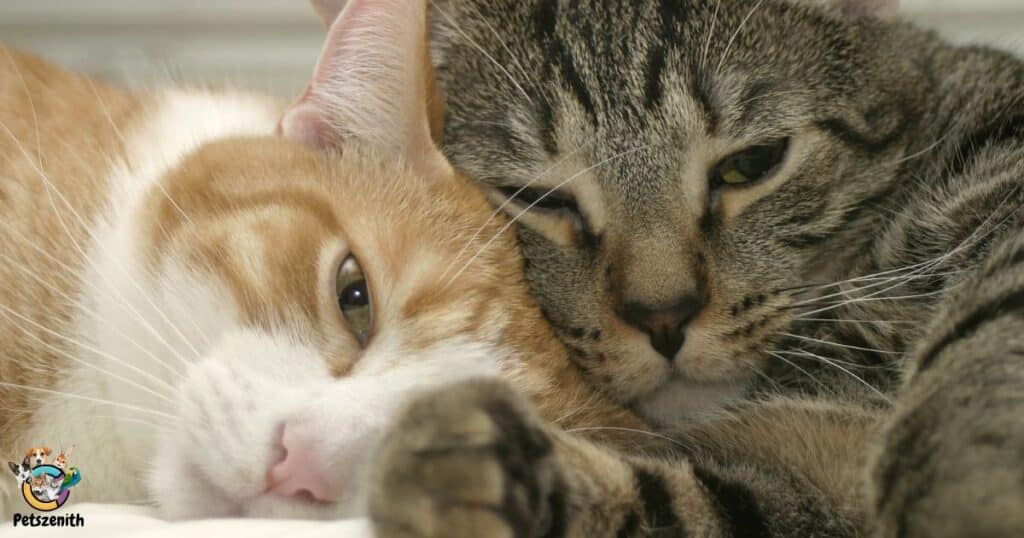If you’ve ever noticed your cat gulping while purring, you might wonder what’s going on. Cats usually purr when they’re happy, but gulping sounds during purring can be puzzling. In this article, we’ll explore the reasons behind this behavior and what you can do to help your furry friend. Let’s dive in to uncover the mystery of why cats gulp while purring.
If you’ve ever wondered, “Why is my cat gulping while purring?” you’re not alone. This curious behavior can leave pet owners puzzled. Cats purr when they’re content, but sometimes they make gulping sounds while doing so. Understanding why can help ensure your furry friend’s health and happiness. Let’s explore the reasons behind this intriguing behavior and what you can do to address it.
Your cat may gulp while purring due to various reasons. Sometimes, it’s just excess saliva or air being swallowed unintentionally. Other times, it could signal underlying issues like acid reflux, infections, or dental problems. Cats may also gulp if they have respiratory concerns or stress. Observing their behavior and consulting a vet can help determine the cause and ensure your cat’s well-being.
Understanding Purring and Gulping
Purring is a common sound cats make when they’re content or relaxed. It’s a gentle vibration produced in their throat. Sometimes, while purring, cats may make gulping sounds, similar to swallowing. This can happen due to various reasons, such as excess saliva or air. Understanding these behaviors helps pet owners better care for their feline companions.
The Purr
The purr is a soothing sound that cats make when they’re content. It’s like a gentle vibration that comes from their throat. Cats often purr when they’re happy, relaxed, or seeking comfort. They may purr when being petted, cuddled, or even when they’re resting peacefully. The purr is a natural behavior in cats and can be a sign of their well-being and happiness.
The Gulping Sound
The gulping sound you hear from your cat while purring might seem odd, but it’s usually harmless. Cats may gulp occasionally due to swallowing excess saliva or air while purring. It’s a reflexive action that doesn’t always indicate a problem. However, if the gulping sound becomes frequent or is accompanied by other symptoms like vomiting or difficulty swallowing, it’s essential to consult your vet for further evaluation.
Is It Normal For Cats To Drool When Purring?
Drooling while purring is normal for some cats. It can happen when they’re deeply relaxed or experiencing pleasure. However, excessive drooling might indicate a problem, like dental issues or mouth discomfort. If your cat drools excessively, it’s best to consult a vet to rule out any underlying health concerns and ensure your cat’s well-being.
How Do I Get My Cat To Stop Drooling And Purring?
If you want to stop your cat from drooling excessively while purring, there are a few simple steps you can take. First, ensure your cat’s dental health by providing regular teeth cleanings and check-ups. Additionally, try to reduce any stressors in their environment that may be causing anxiety.
Encourage hydration by providing fresh water and consider feeding them smaller, more frequent meals. Lastly, if the drooling persists or worsens, it’s essential to consult with your veterinarian for further evaluation and treatment.
Recommended Post: Cat-Friendly Carpets: The Best Types For Your Furry Friends
Is It Normal for Cats to Gulp While Purring?
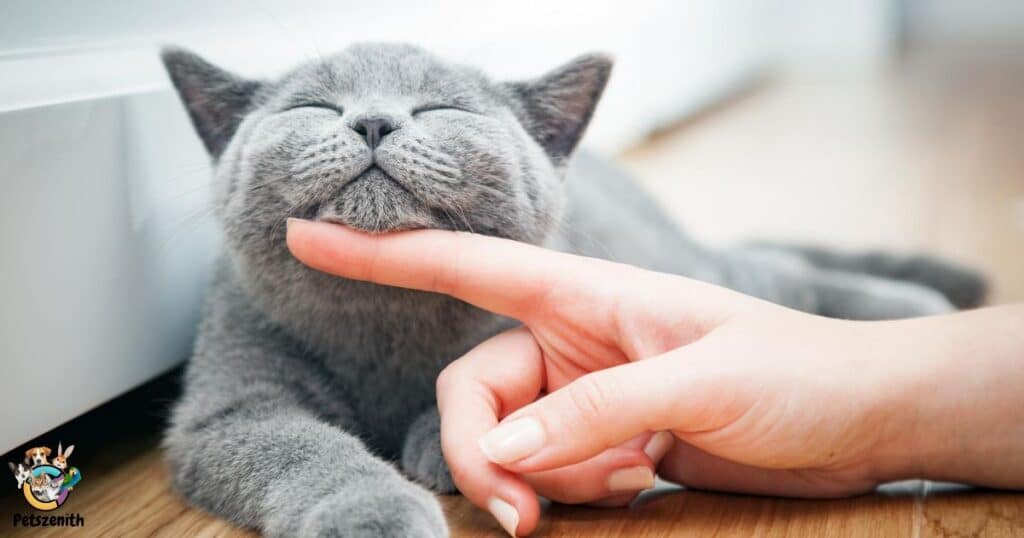
Gulping while purring is not uncommon in cats. Sometimes, it’s just a natural reflex, and there’s no need to worry. Cats may gulp due to excitement or if they’ve swallowed excess saliva or air while purring. However, if the gulping is excessive or accompanied by other concerning symptoms, it’s essential to consult a veterinarian to rule out any underlying health issues. Keeping an eye on your cat’s behavior and seeking professional advice when needed ensures their well-being.
Can Cats Die from Gulping While Purring?
While occasional gulping while purring is usually harmless, persistent gulping could indicate an underlying problem. In extreme cases, if left untreated, these underlying issues could potentially lead to complications that might endanger your cat’s life. It’s essential to monitor your cat’s behavior closely and consult a veterinarian if you notice any concerning symptoms.
What Is Purring and Why Do Cats Do It?
Purring is a soothing sound that cats make when they’re happy, relaxed, or seeking comfort. It’s a gentle vibration produced by their vocal cords, often heard during moments of contentment. Cats may purr to communicate their feelings to other cats or humans, to self-soothe during stressful situations, or even to heal themselves. It’s a natural behavior that helps cats bond with their owners and feel secure in their environment.
When should I worry about my cat drooling?
If your cat drools occasionally, it’s usually not a cause for concern. However, if you notice excessive drooling, especially if it’s accompanied by other symptoms like lethargy, loss of appetite, or difficulty breathing, it’s essential to consult your veterinarian.
Persistent drooling can indicate dental issues, oral infections, or underlying health problems that require prompt attention. Monitoring your cat’s behavior and seeking veterinary advice can help ensure their health and well-being.
Reasons Your Cat May Make Gulping Sounds While Purring
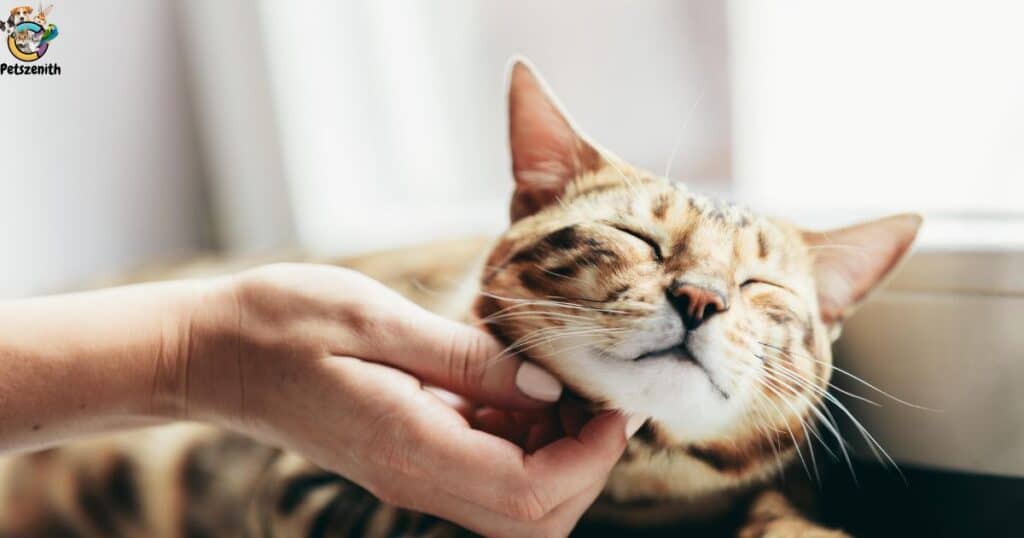
There are several reasons why your cat may make gulping sounds while purring. It could be due to excess saliva, especially if they’re excited or have dental issues. Cats may also swallow air accidentally while purring. Underlying health conditions like acid reflux, infections, or respiratory issues can also cause gulping.
Additionally, stress or anxiety may manifest as gulping behaviors in cats. Monitoring their behavior and consulting with a veterinarian can help identify and address the underlying cause.
Swallowing Excess Saliva
When cats swallow excess saliva, it could be a normal response to excitement or anticipation. However, excessive drooling may indicate dental issues, such as gum disease or tooth decay. Hairballs can also trigger increased saliva production, leading to swallowing difficulties. Keeping an eye on your cat’s drooling habits and consulting a veterinarian if it becomes excessive can help identify and address any underlying concerns.
Swallowing Air
Cats may swallow air unintentionally, especially when they purr vigorously or eat quickly. This can happen due to excitement, anticipation, or even stress. Swallowing air can lead to discomfort and result in gulping sounds, especially during purring sessions. Monitoring your cat’s eating habits and providing a calm environment can help reduce the chances of excessive air swallowing.
Acid Reflux or GERD
Acid reflux, also known as GERD (gastroesophageal reflux disease), is a condition where stomach acid flows back into the esophagus. In cats, this can cause discomfort and irritation, leading to symptoms like gulping while purring. Cats with GERD may experience heartburn, regurgitation, or difficulty swallowing. It’s essential to consult a veterinarian if you suspect your cat has acid reflux to manage the condition effectively and ensure your cat’s comfort.
Streptococcal Infection
Streptococcal infection is a bacterial illness that can affect cats. It often targets the throat and can lead to discomfort and difficulty swallowing. Cats with streptococcal infection may exhibit symptoms such as excessive drooling, reluctance to eat, and lethargy. Prompt veterinary attention is crucial to diagnose and treat this condition effectively. Treatment typically involves antibiotics and supportive care to help alleviate symptoms and prevent complications.
Thyroid Issues
Thyroid issues in cats can lead to various health problems. When a cat’s thyroid gland produces too much hormone, it can result in hyperthyroidism, causing symptoms like weight loss, increased appetite, and restlessness. On the other hand, if the thyroid gland is underactive, it may lead to hypothyroidism, characterized by weight gain, lethargy, and fur loss. Regular vet check-ups and proper medication can help manage thyroid issues and ensure your cat stays healthy.
Respiratory Concerns
If your cat has respiratory concerns, it might have difficulty breathing. This can lead to wheezing, coughing, or labored breathing. Respiratory issues can be caused by infections like colds or pneumonia. Asthma, allergies, or even exposure to smoke can also affect your cat’s breathing. If you notice any signs of respiratory distress, such as rapid breathing or blue gums, it’s essential to seek veterinary attention promptly to ensure your cat receives proper care.
Other Factors That Make Your Cat Swallow Hard
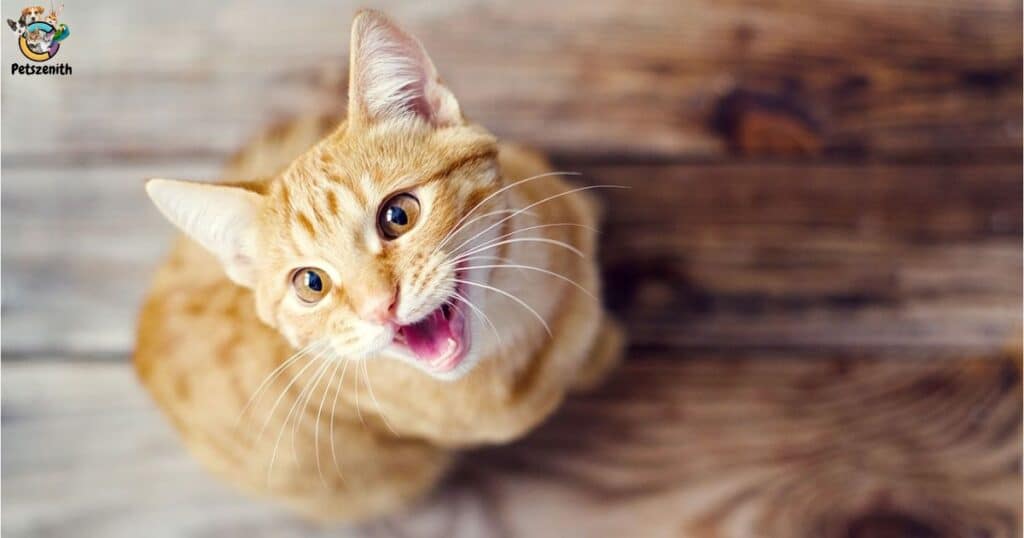
Several factors can cause your cat to swallow hard. Hairballs are common culprits, leading to discomfort and difficulty swallowing. Asthma or allergies may irritate their throat, prompting swallowing difficulties. Additionally, physical discomfort, such as oral pain or throat issues, can contribute to swallowing challenges.
Behavioral factors like stress or anxiety may also manifest as difficulty swallowing. Observing these signs and seeking veterinary advice can help address your cat’s needs.
Hairballs
Hairballs are common in cats. When cats groom themselves, they swallow loose hair, which can’t be digested easily. Over time, this hair forms into a ball in their stomach. To get rid of it, cats may vomit the hairball. While occasional hairballs are normal, frequent ones could indicate excessive grooming or underlying health issues. Regular grooming and a high-fiber diet can help prevent hairballs in cats.
Asthma and Allergies
Asthma and allergies can affect cats, just like they do humans. Cats with asthma may wheeze, cough, or have difficulty breathing. Allergies can cause itching, sneezing, or skin problems in cats. Common allergens include pollen, dust, and certain foods. If you suspect your cat has asthma or allergies, consult your vet for proper diagnosis and treatment options.
Physical Discomfort
Physical discomfort in cats can lead to noticeable changes in behavior. When cats experience pain or discomfort, they may exhibit symptoms like lethargy, decreased appetite, or unusual vocalizations. Common sources of physical discomfort include dental issues, arthritis, injuries, or digestive problems.
It’s essential to monitor your cat’s behavior closely and consult a veterinarian if you suspect they’re experiencing physical discomfort to ensure they receive appropriate care and treatment.
Dental or Gum Issues
Dental or gum issues can cause discomfort for your cat. Problems like periodontal disease or oral ulcers may make swallowing painful, leading to gulping behaviors. Regular dental check-ups and proper oral hygiene can help prevent these issues. If you notice your cat having difficulty eating or showing signs of oral discomfort, it’s essential to consult your veterinarian for appropriate treatment.
Behavioral Factors
Behavioral factors can also contribute to why your cat gulps while purring. Cats may gulp due to stress, anxiety, or discomfort in their environment. Changes in routine, new surroundings, or conflicts with other pets can trigger this behavior. Providing a calm and comforting environment for your cat, along with plenty of attention and enrichment activities, can help reduce stress-related gulping behaviors.
How Can I Help My Cat Stop Gulping While Purring?
If your cat is gulping while purring, there are steps you can take to help them. Firstly, ensure they have regular vet check-ups to identify any underlying health issues. Keep their stress levels low by providing a safe and comfortable environment.
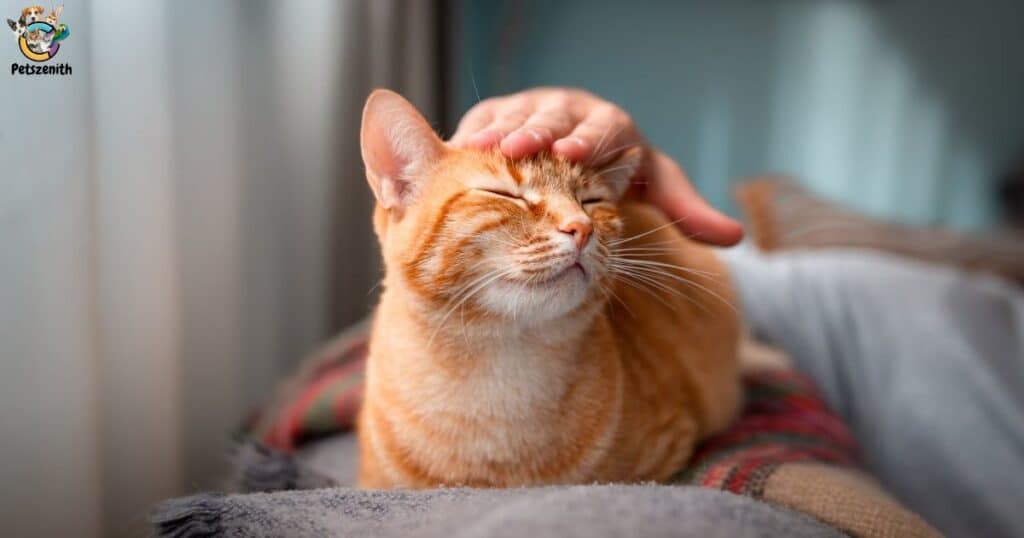
Groom them regularly to reduce hairballs and discomfort. Pay attention to their eating and drinking habits, and consult your vet if you notice any changes. By taking these steps, you can help your cat feel more comfortable and reduce their gulping behavior.
When to Consult Your Vet
Knowing when to consult your vet is crucial for your cat’s health. If you notice any changes in behavior, appetite, or appearance, it’s time to schedule a visit. Additionally, persistent symptoms like vomiting, diarrhea, or difficulty breathing warrant immediate attention. Older cats and those with chronic conditions may need more frequent check-ups. Trust your instincts – if something feels off, don’t hesitate to seek professional advice. Early intervention can often prevent minor issues from escalating into more serious health concerns.
Frequency of the Behavior
The frequency of your cat’s gulping behavior can vary. Some cats may gulp occasionally, while others do it more frequently. Pay attention to how often your cat gulps and if it seems to be increasing or accompanied by other symptoms. If you notice a sudden change or if the gulping becomes persistent, it’s essential to consult a veterinarian to rule out any underlying health issues.
Accompanying Symptoms
Accompanying symptoms are signs that may occur alongside gulping behaviors in cats. These can include changes in appetite or thirst, lethargy, coughing, difficulty breathing, or noticeable discomfort while swallowing. If you notice any of these symptoms in your cat, it’s essential to consult with a veterinarian promptly. Identifying and addressing these accompanying symptoms can help diagnose underlying issues and ensure your cat receives appropriate care and treatment.
Changes in Eating or Drinking Habits
Changes in your cat’s eating or drinking habits could indicate potential health concerns. If your cat suddenly eats less or more than usual, it might signal digestive issues, dental problems, or stress. Conversely, increased thirst could point to conditions like diabetes or kidney disease. Keep an eye on any shifts in appetite or water intake and consult your veterinarian if you notice significant changes.
Behavioral Changes
When cats experience behavioral changes, it could indicate underlying issues. These changes might include increased vocalization, hiding, or aggression. Such behaviors could be a sign of discomfort, stress, or illness. It’s essential to observe your cat’s behavior closely and consult with a veterinarian if you notice any significant changes to ensure their health and well-being.
Age of Your Cat
The age of your cat plays a significant role in their health and behavior. Younger cats may experience gulping while purring due to excitement or playful behavior. On the other hand, older cats may gulp due to age-related issues such as dental problems or throat discomfort. Monitoring your cat’s behavior as they age and scheduling regular check-ups with the vet can help address any concerns and ensure their well-being.
Prevention and Care: Ensuring Your Cat’s Wellbeing
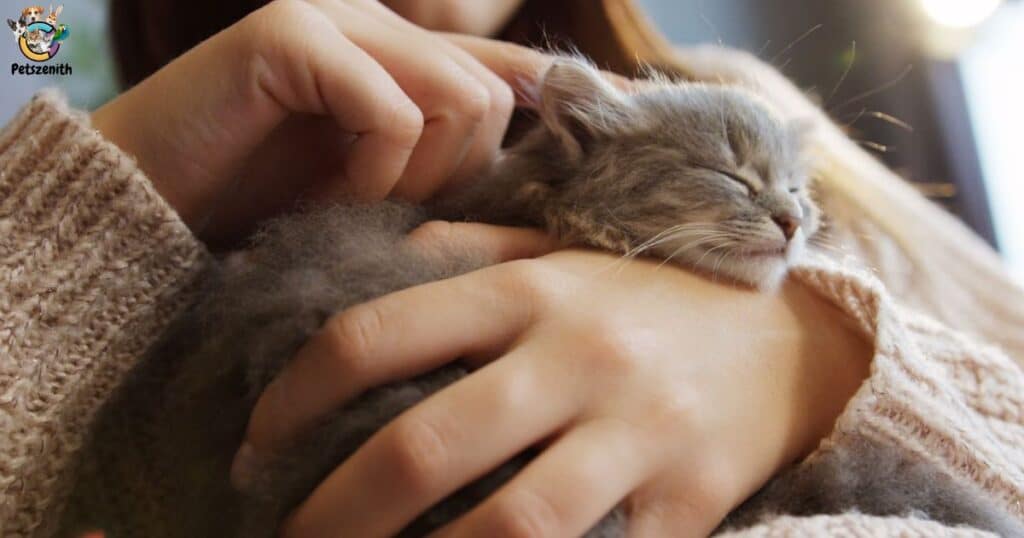
Ensuring your cat’s wellbeing involves simple steps. Regular vet check-ups are essential for monitoring health. Keep your cat’s coat clean through regular grooming to prevent hairballs. Providing a balanced diet and ensuring hydration is crucial. Create a safe environment and reduce stressors for a happy cat. By taking these measures, you can ensure your cat stays healthy and content.
Regular Vet Check-ups
Regular vet check-ups are essential for your cat’s health. These visits help catch any potential issues early. Your vet can provide vaccinations, check for parasites, and monitor your cat’s overall well-being. These check-ups ensure your cat stays healthy and happy for years to come.
Groom Your Cat Regularly
Grooming your cat regularly is important for their health and happiness. Brushing their fur helps remove loose hair and prevents matting. It also stimulates blood circulation and distributes natural oils, keeping their coat shiny and smooth. Additionally, grooming allows you to check for any signs of skin problems or parasites. Make grooming sessions a bonding experience by offering treats and gentle strokes, ensuring your cat enjoys the process.
Dietary Watch
Dietary watch means keeping an eye on what your cat eats. It’s important to feed them a balanced diet rich in nutrients. Avoid giving them too many treats or human food, as it can lead to obesity and health issues. Make sure they have access to fresh water at all times. Consult with your veterinarian to determine the best diet plan for your cat’s specific needs.
Hydration
Hydration is essential for your cat’s health. Just like humans, cats need plenty of water to stay hydrated and maintain proper bodily functions. Make sure to provide clean, fresh water for your cat every day. Monitor their water intake, especially during hot weather or if they have health conditions like kidney disease. Dehydration can lead to serious health issues, so always ensure your cat has access to water to keep them happy and healthy.
Safe Environment
Creating a safe environment for your cat is crucial. Remove any potential hazards like toxic plants or small objects they could swallow. Keep electrical cords out of reach and secure heavy furniture to prevent accidents. Provide hiding spots and vertical spaces for them to explore safely. Regularly check for any dangers and make adjustments to ensure your cat’s environment remains secure and comfortable.
Stress Reduction
Reducing stress in your cat is essential for their overall well-being. You can create a calming environment by providing hiding spots, cozy beds, and soothing music. Regular play sessions and interactive toys help alleviate boredom and anxiety. Additionally, maintaining a consistent routine and ensuring a peaceful living space can help minimize stress triggers for your feline friend.
Educate Yourself
Educating yourself about your cat’s health and behavior is important. Learn about common cat illnesses, grooming techniques, and proper nutrition. Understand your cat’s body language and signs of distress. By staying informed, you can provide the best care for your furry friend and detect any potential issues early.
Frequently Asked Questions
Is it normal for cats to gulp while purring?
Occasional gulping may be normal, but persistent gulping could indicate underlying issues.
What causes cats to gulp while purring?
Excess saliva, swallowing air, acid reflux, infections, stress, or respiratory problems can cause cats to gulp while purring.
Can gulping while purring be harmful to my cat?
In extreme cases, persistent gulping may lead to complications if left untreated, so it’s best to consult a vet.
How can I help my cat if it’s gulping while purring?
Monitor your cat’s behavior, ensure proper hydration, maintain regular vet check-ups, and address any underlying health issues.
Should I be concerned if my cat drools while purring?
Some drooling is normal, but excessive drooling accompanied by other symptoms may warrant a vet visit for evaluation.
Conclusion
understanding why cats gulp while purring is essential for their well-being. Whether it’s due to excess saliva, swallowing air, or underlying health issues like acid reflux or infections, being aware of these factors can help us better care for our feline companions. By observing their behavior, seeking veterinary advice when necessary, and providing a safe and stress-free environment, we can ensure that our cats remain happy and healthy. So, if you’ve ever wondered “Why is My Cat Gulping While Purring?” remember to stay informed and attentive to your cat’s needs.

Davin Connor is an experienced author with 3 years in pets writing. Known for concise, informative content, he shares expertise on pet care, behavior, and health through his engaging articles.
